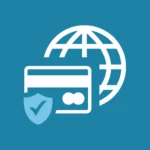Payment Data Security
The digital payments industry now processes more than $4 billion worth of transactions each year in credit cards, e-transfers, online payments and gift cards. Cyber criminals are taking notice. Fraud is on the rise as attackers look for ways to infiltrate corporate networks and steal consumer payment data. From effective security service for credit cards to critical oversight of digital-only transactions, payment industry organizations need security tools and solutions that help them meet existing challenges and stay ahead of emerging threats.

Evolving Landscape
Consumers now expect ease-of-use and security across all payment types. In response, payment industry organizations must be prepared to support transactions on demand by striking a balance between simplicity of action and security of payment data. For example, it’s critical for organizations to leverage the SSL protocol to encrypt all payment information flowing to and from payment portals. In addition, companies must now consider adopting two-factor authentication — using tools such as fingerprints or SMS codes — to improve security without impacting transaction speed.

What’s Next for Payment Data Security?
Payment security isn’t static. Attackers are constantly looking for new ways to bypass security measures or compromise payment sessions. At HALOCK Security Labs, we’re committed to helping businesses prepare for the next iteration of payment data security with services such as:
- Risk Based Threat Assessment: Improve protection against the five MITRE ATT&CK Types. Prioritize security controls to enhance or implement using the best threat data the cybersecurity community offers, leveraging the HALOCK Industry Threat (HIT) Index, a model for estimating the most likely (and least likely) ways your organization will be hit by a cybersecurity or information security attack.
- HALOCK’s Cloud Security Assessment: Gain insight on your risks. The assessment provides a review of Azure, AWS, and Google (GCP) cloud environments to identify risk and recommends how to remediate them.
- Payment compliance (PCI DSS)— Meeting compliance requirements such as the Payment Card Industry Data Security Standards (PCI DSS) is critical to ensuring that transactions are properly handled, encrypted and completed. We can help your organization meet this continually evolving credit card security compliance standard. PCI DSS v4.0 is here, and you have a big transition ahead. Assess your security posture and PCI compliance today. Register for our PCI Compliance Webinar Series to help you transition to the new standard.
- Security engineering — Solutions such as tokenization — which replaces credit card numbers with random strings of characters to prevent theft or compromise — boost consumer confidence and improve payment data security. Our security engineering experts help you select and implement reasonable, best-fit payment protection solutions. Conduct security architecture reviews, cyber threat management and monitoring, or sensitive data scanning to best manage your information, and proactively prepare against cyber security threats like skimming or Magecart. Ensure you have reasonable security controls to fulfill your compliance requirements such as web application firewalls (WAF) or multi-factor authentication (MFA).
- Managed Detection and Response (MDR) — A recurring review of your threat landscape is a best practice for your industry through a managed detection and response program (MDR) or Threat Hunting Program.
- Payment system penetration testing — Is your payment processing system secure? Our pen testing teams have the depth of expertise and breadth of experience to find potential weaknesses and uncover vulnerabilities before hackers have the chance. Before launching a new payment app, validate it is secure to handle credit card holder data. Protect your private information by conducting network penetration testing to identify any areas that could be exploited by hackers. Test to see if your controls and team can respond appropriately in the event of a breach with an Assumed Breach or Adversary Simulation penetration test. Once you identify any weaknesses, ensure you have them rectified with a remediation verification pen test. Consider a Recurring Penetration Testing program to assess your safeguards throughout the year for a proactive security approach.
- Cyber Security Awareness Training – With many employees now working remotely, they are targets for hackers. Ensure they understand the potential cyber security threats they may experience and best practices to prevent cyber attacks that would compromise the credit card data you manage. Security Awareness training will provide guidance on how to detect suspicious activity and what to do in the event of a security incident.
- Incident response and digital forensics — Attacks happen. When they do, you need to know exactly what’s been compromised, when it happened and how you’re going to remediate the issue. HALOCK’s incident response management, process, and planning provide comprehensive coverage in the event of a security breach. We’ve developed best-of-breed procedures to help payment industry organizations quickly identify and respond to security incidents. The faster you appropriately respond to attack, the better you can minimize the impact of a breach. With our advanced digital forensics on your side, you’ll also gain the upper hand in preventing further attacks. Explore an ongoing program that gets in front of any potential cyber security threats or attacks. You can be response ready with an Incident Response Readiness as a Service (IRRaaS) program.
- Third-party risk management (TPRM) /vendor risk management — Ensure third-party partners are aligned with your organization’s risk controls. Vendors and contractors serve as an extension of your group. They represent you and should operate under your business requirements. A required best practice is to always conduct a supplier risk assessment to keep your vendors on point with your security posture. HALOCK can help build and manage a reasonable security program for your environment.
- Risk assessments — Regulations require your safeguards be reasonable to your organization, customers and partners. With many frameworks available, how do you establish your acceptable risk? The Duty of Care Risk Assessment (DoCRA) helps you define a reasonable security strategy factoring in compliance and safeguards based on your specific business, objectives and social responsibility. A risk assessment is also a top consideration when acquiring cyber insurance, as your coverage and premiums adjust to your risk posture.
- Risk Management & Security Maintenance — Our experts have the industry knowledge you need to prioritize and optimize security investments while keeping you compliant. An ongoing risk management program provides continuous maintenance and insight on your risk profile and how to enhance your security. A risk management program can incorporate all facets of your security program wholistically.
- Privacy — CCPA is the most sweeping legislation to date in the U.S. that concerns the protection of personal information. It broadens the definition of what constitutes personal information and gives California citizens greater control over what companies can do with their personal data. The California Privacy Law includes the right to exempt their own personal information from being shared or purchased on the open market. Understand the impact this change and other states’ requirements have on your organization. Know what private information you manage and where it is located to properly secure – conduct Sensitive Data Scanning as a Service (SDSaaS) to ensure you have a current data inventory of sensitive information.

Your Full-Service Partner
It’s our mission to provide that rare combination of expert security analysis and effective infosec execution. At HALOCK Security Labs, we recognize the unique challenges faced by payment industry organizations — that companies need both data-driven security strategies and purpose-driven products capable of defending payment networks against emerging threats. That’s why we take a reasonable and appropriate approach to risk management, one that helps your organization meet the high standards of due diligence required by PCI DSS and other compliance regulations. But we also understand the need to strike a balance between these regulations and critical business goals. Simply put, security should protect and support your organization’s mission, objectives and obligations as well as empower your outcomes. Improve payment data security and drive better business outcomes with HALOCK Security Labs and our credit card security services. Let’s talk.
KEEPING YOU INFORMED – HALOCK SECURITY BRIEFING FOR CLIENTS
The HALOCK Security Briefing is a review of significant events, trends, and movements that will influence how you manage cybersecurity, risk, and compliance. Our clients receive periodic overviews with an extensive report file on the topics discussed. This insightful document also includes reference links throughout the report for easy navigation and deeper research.
Develop a reasonable security strategy to address your changing working environment and risk profile. HALOCK is a trusted risk and cybersecurity consulting firm headquartered in Schaumburg, IL in the Chicago area servicing clients on reasonable security throughout the United States.

PCI WEBINAR SERIES
Transition to PCI DSS v4.0 Webinar
PCI DSS v3.2.1 expired on March 31, 2024. With 64 new requirements in PCI DSS v4.0, companies have a lot to consider in preparation for the coming deadline. In our 5-part PCI Webinar Series, learn about the general changes to 4.0, new requirements, best practices, and how an increased focus on risk evaluations in this new version is a driving force for security and compliance.
Viviana Wesley, CISM, PCI QSA, ISO 27001 Auditor and HALOCK Principal Consultant reviewed key updates and next steps to support your transition to PCI DSS v4.0.
